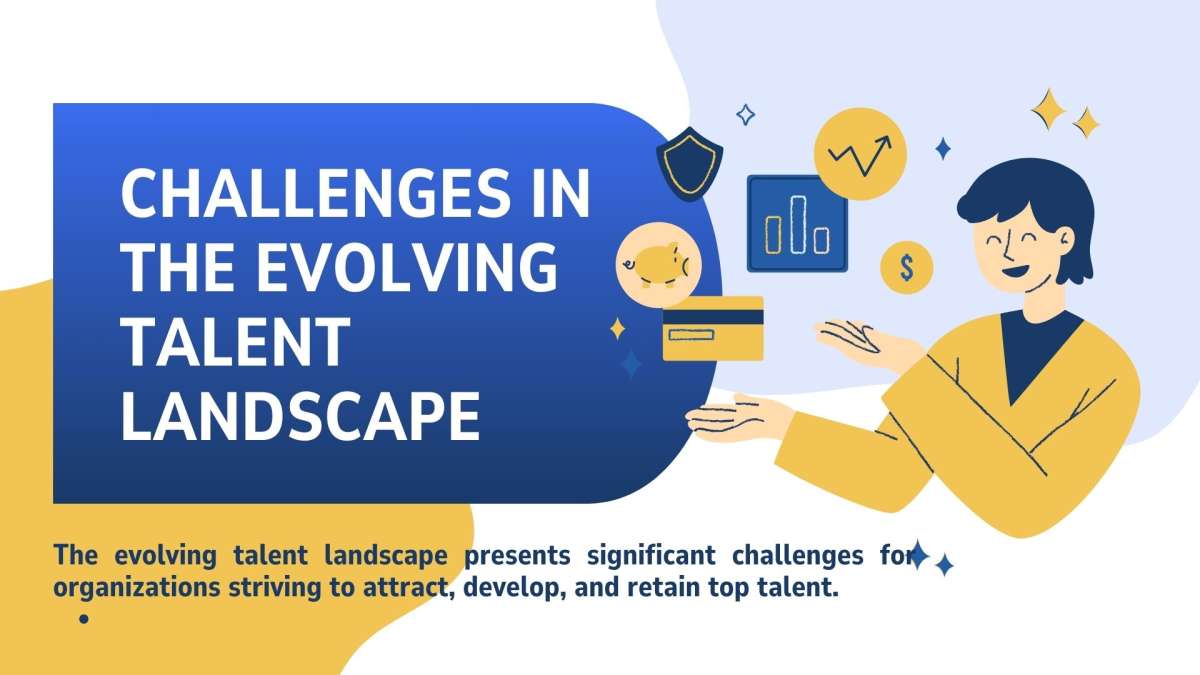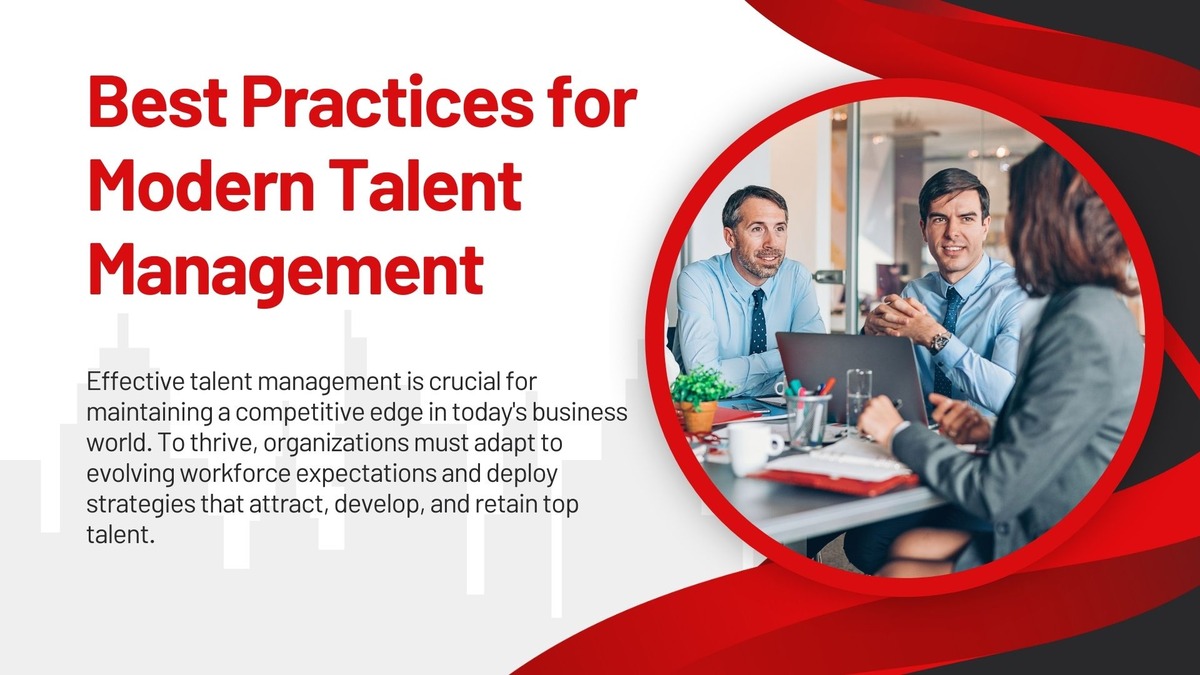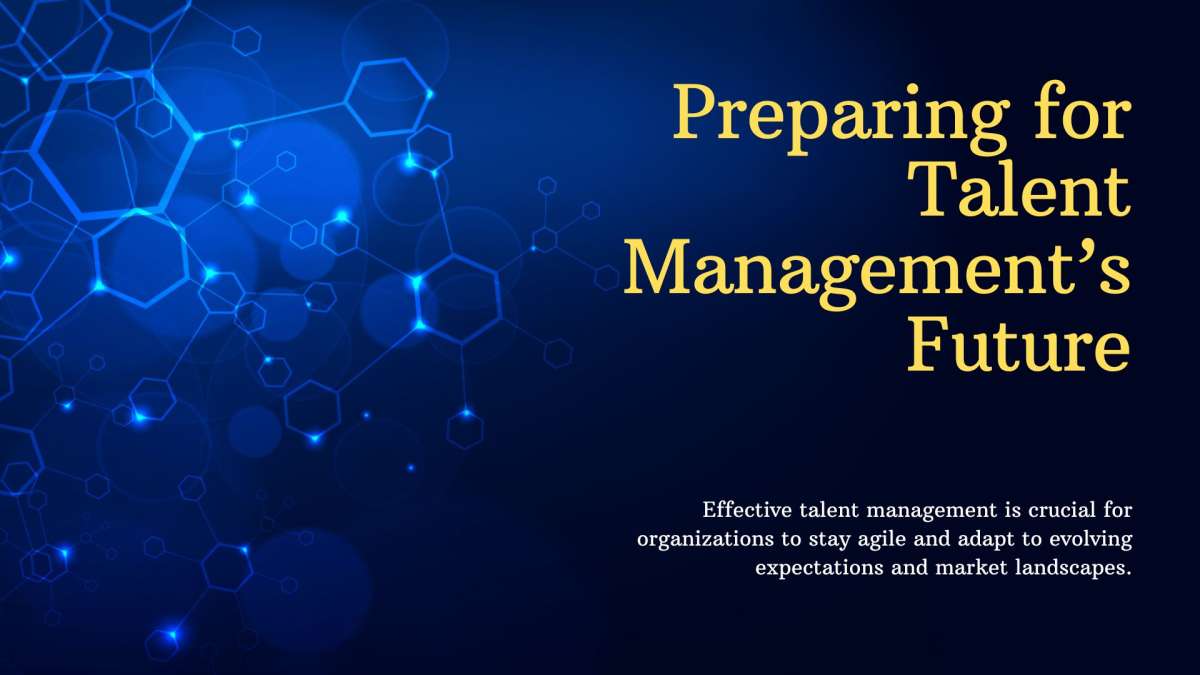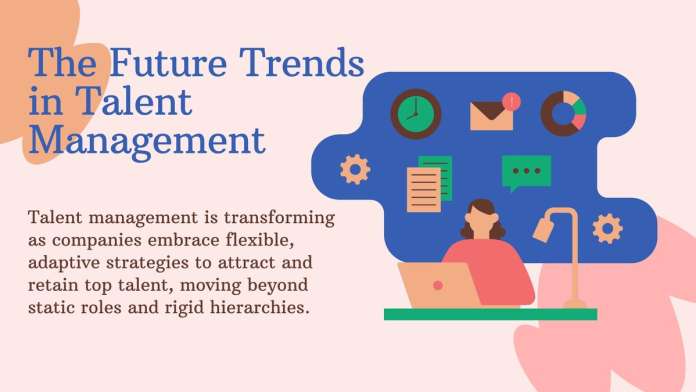The future trends in talent management is undergoing a significant transformation, shaped by a range of emerging trends and evolving workplace dynamics. Companies that want to stay competitive must rethink their strategies to attract and retain top talent in this dynamic environment. The days of static job roles and rigid organizational hierarchies are fading. Instead, we’re witnessing a shift towards more flexible and adaptive talent management practices.
The Future Trends in Talent Management: Embracing Learning, Inclusivity, and Technology
One of the most notable aspects of the future trends in talent management is the emphasis on continuous learning and development. As industries rapidly evolve, the skills that were relevant yesterday may not be tomorrow. Consequently, businesses are prioritizing upskilling and reskilling their workforce to keep pace with technological advancements and market changes.
- Inclusive Workforce:Moreover, the future landscape will be influenced heavily by a diverse and inclusive workforce. Companies are recognizing that a variety of perspectives and experiences can drive innovation and lead to better business outcomes. Therefore, fostering an inclusive culture is becoming an imperative, not just a nice-to-have.
- Technology-Driven Talent Management:Another key aspect is the role of technology. Advanced AI tools and data analytics are set to revolutionize how companies manage their talent pools. These technologies provide valuable insights into employee performance, engagement, and potential, enabling more informed decision-making.
- Prioritizing Employee Well-Being: In this future-focused approach to talent management, employee well-being is at the forefront. Organizations are paying more attention to the mental, emotional, and physical health of their employees. This holistic view of talent management not only boosts productivity but also enhances employee satisfaction and loyalty.
In conclusion, the future of talent management is about adaptability, continuous learning, inclusivity, and leveraging technology to create a thriving, agile workforce. Businesses that embrace these shifts will be well-positioned to attract and retain top talent in an ever-changing world.
Key Trends Shaping Talent Management

In today’s fast-paced business environment, several key trends are revolutionizing the field of talent management. Understanding these trends can help companies attract, retain, and develop top talent more effectively.
- Employee Experience: One significant trend is the growing emphasis on employee experience. Companies are prioritizing a positive work environment, flexible working conditions, and opportunities for personal and professional growth. This shift reflects a broader understanding that a satisfied and engaged employee is more productive and loyal.
- Remote Work: Another game-changer is the rise of remote work. The COVID-19 pandemic accelerated the adoption of flexible work arrangements, and many organizations are now implementing permanent remote or hybrid work models. This trend is expanding the talent pool globally, allowing companies to tap into diverse skill sets and perspectives.
- Diversity, Equity and Inclusion (DEI): Diversity, equity, and inclusion (DEI) are also at the forefront of talent management. Organizations recognize that a diverse workforce brings varied viewpoints and ideas, driving innovation and performance. As a result, companies are investing in DEI initiatives to create more inclusive workplaces.
- Upskilling and Reskilling: With rapid advancements in technology and changing market demands, the skills required today might not be relevant tomorrow. Progressive companies are continuously offering training programs, workshops, and online courses to keep their workforce’s skill sets up to date.
- Data Analytics: Finally, the integration of data analytics in HR processes is deepening. Companies are increasingly relying on data to make informed decisions about talent acquisition, performance management, and employee engagement. Data-driven insights help in identifying high-potential employees and tailoring development programs to individual needs.
Staying ahead in talent management requires being attuned to these trends. Embracing them can help organizations build a strong, agile, and future-ready workforce.
Challenges in the Evolving Talent Landscape

The evolving talent landscape presents significant challenges for organizations striving to attract, develop, and retain top talent.
- Skills Gap: One of the most pressing issues is the growing skills gap. As technology rapidly advances, the demand for new and specialized skills outpaces the supply, leaving many companies struggling to find qualified candidates.
- Managing Remote Teams: Another challenge is the rise of remote work. While it offers flexibility, it also complicates performance monitoring and team cohesion. Managers must adapt to new ways of leading dispersed teams, which requires a shift in traditional management styles and improved communication strategies.
- Shifting Employee Expectations: Employee expectations are also changing. Today’s workforce prioritizes work-life balance, career growth, and company culture over traditional job perks like salary. Companies need to put more effort into creating meaningful employee experiences that align with these priorities to keep their workforce engaged and motivated.
- Diversity & Inclusion Priority: Additionally, diversity and inclusion are no longer optional but essential for a healthy workplace. However, fostering a truly inclusive environment can be challenging. It requires dedicated efforts to eliminate unconscious biases and promote diverse hiring practices.
- Data Privacy Concerns: Finally, data privacy concerns are increasingly prominent. As talent management becomes more data-driven, companies must ensure they comply with regulations while protecting employee information.
Addressing these challenges is crucial for organizations to remain competitive in a fast-changing market. By acknowledging and tackling these obstacles head-on, businesses can create a more resilient and adaptable talent management strategy.
Best Practices for Modern Talent Management

Effective talent management is crucial for maintaining a competitive edge in today’s business world. To thrive, organizations must adapt to evolving workforce expectations and deploy strategies that attract, develop, and retain top talent.
- Focus on Employee Experience: Modern talent management prioritizes creating a positive employee experience. This involves offering flexible work arrangements, fostering a diverse and inclusive environment, and providing robust wellness programs. Happy employees are more engaged and productive.
- Continuous Learning and Development: Investing in the continuous development of your team is non-negotiable. Implement personalized training programs, encourage cross-functional projects, and offer opportunities for career growth. This not only enhances skills but also boosts employee satisfaction and loyalty.
- Data-Driven Decision Making: Make use of data analytics to inform talent management strategies. Analyzing performance metrics, employee feedback, and market trends can help in identifying areas for improvement and making well-informed decisions.
- Performance Management: Shift from annual performance reviews to a continuous feedback model. Regular check-ins and constructive feedback help employees stay aligned with organizational goals and continuously improve their performance.
- Emphasize Soft Skills: In addition to technical skills, soft skills like communication, leadership, and adaptability are crucial. Ensure your talent development programs nurture these essential traits.
- Engage in Transparent Communication: Open and honest communication builds trust within teams. Keep your employees informed about company goals, changes, and policies. This transparency fosters a sense of belonging and aligns everyone with the organization’s vision.
By implementing these modern talent management practices, companies can create a resilient, motivated, and high-performing workforce poised to meet the challenges of the future. Prioritizing employee well-being, development, and transparent communication will yield long-term benefits and drive organizational success.
The Role of Technology in Talent Management

Technology is revolutionizing talent management, making it easier for companies to attract, retain, and develop top talent.
- Artificial Intelligence (AI) and Machine Learning (ML): One of the most impactful advancements is the use of Artificial Intelligence (AI) and Machine Learning (ML). These technologies can analyze vast amounts of data to provide insights into employee performance, predict turnover risks, and even identify the best candidates for open positions.
- Applicant Tracking Systems (ATS): Applicant Tracking Systems (ATS) have become more sophisticated, enabling the automation of routine tasks such as resume screening and interview scheduling. This allows HR professionals to focus on strategic activities like talent development and employee engagement. Additionally, HR analytics tools help organizations measure the effectiveness of their talent strategies, providing data-driven insights that support better decision-making.
- Human Capital Management (HCM): Another important technology is cloud-based Human Capital Management (HCM) systems. These platforms integrate various HR functions—such as payroll, benefits administration, and employee records—into one centralized location. This not only streamlines HR operations but also ensures compliance and accuracy across the board.
- VR and AR Transforming Training and Onboarding: Virtual Reality (VR) and Augmented Reality (AR) are being increasingly used for training and onboarding. These immersive technologies offer interactive experiences that can help new hires get up to speed quickly and effectively.
- Mobile HR for Flexibility: Mobile technology also plays a crucial role, especially for a workforce that is increasingly remote or on the go. Mobile apps enable employees to access HR information, training modules, and communication tools from anywhere, thus enhancing flexibility and productivity.
In a nutshell, technology is a powerful enabler in modern talent management. Organizations that leverage these innovations will be better positioned to manage their talent effectively and stay competitive in the ever-changing business landscape.
Conclusion: Preparing for Talent Management’s Future

As organizations gear up for the future, effective talent management becomes vital. Businesses need to stay agile, continuously evolving to meet changing expectations and market landscapes. Here’s a strategic approach to prepare:
- Embrace Continuous Learning: Cultivate a culture where upskilling and reskilling are part of everyday operations. Encourage employees to pursue professional development and stay current with industry advancements.
- Leverage Data Analytics: Use data-driven insights to make informed decisions about talent acquisition, development, and retention strategies. Analytics can help identify skills gaps, predict turnover, and personalize employee development plans.
- Prioritize Employee Well-Being: A happy, healthy workforce is more productive and engaged. Implement well-being programs that address mental, physical, and emotional health. Show employees that their well-being is a top priority.
- Promote Diversity and Inclusion: Diverse teams bring varied perspectives that can drive innovation and problem-solving. Ensure that your recruitment, retention, and promotion strategies are inclusive, and actively work to create an environment where all employees feel valued.
- Adopt Flexible Work Models: The shift towards remote and hybrid work is here to stay. Develop policies that support flexible working environments, enabling employees to balance work and personal life more effectively.
- Invest in Technology: From AI-driven recruitment tools to sophisticated HR software, technology can streamline and enhance talent management processes. Stay updated with the latest tech trends and integrate tools that align with your organizational goals.
By focusing on these areas, businesses can build resilient, adaptable, and forward-thinking talent management strategies that will help them thrive in a dynamic future.
Read More: Top 10 Popular SaaS Marketing Blogs in 2024

